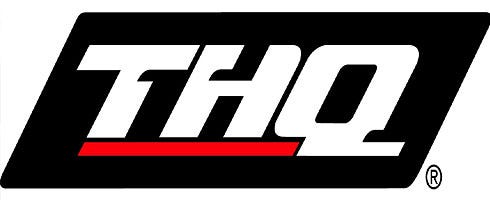THQ: Q3 fiscal year 2010 shows net sales of $356.7 million
THQ has released its Q3 financials for fiscal year 2010, and for the three months ended December 31, 2009, it saw a profit.
With the financial year ending for the firm on March 31, 2010, the end of December 2009 saw Q3 ending with net sales of $356.7 million, compared with $357.3 million in the prior-year period, with non-GAAP net sales of $357.0 million, compared with $385.6 million a year ago.
“We are pleased to report solid profitability in the third quarter and we are on track to achieve all of our fiscal 2010 financial targets that we announced at the beginning of the fiscal year,” said Brian Farrell, president and CEO. “This marks a significant turnaround for THQ in just one year and underscores the success of our focused strategy and reduced cost structure.
"Farrell said, “In addition to meeting our financial targets, we launched two new franchises, UFC and Darksiders, and significantly strengthened our balance sheet. We also secured new long-term license agreements and continued to migrate our brands to digital platforms in order to drive THQ’s growth over the next several years."
The call to investors is happening in about 10 minutes, so if anything good comes out of it, we'll be sure to let you know.
Full PR:
AGOURA HILLS, Calif.--(BUSINESS WIRE)--THQ Inc. (NASDAQ: THQI - News) today announced financial results for the three months ended December 31, 2009. Fiscal 2010 third quarter net sales were in line with the company’s guidance; the company did not provide earnings guidance for the quarter. The company also reaffirmed its outlook for net sales, profitability and cash position for the fiscal year ending March 31, 2010.
For the fiscal third quarter ended December 31, 2009, THQ reported net sales of $356.7 million, compared with $357.3 million in the prior-year period. On a non-GAAP basis, for the three months ended December 31, 2009, the company reported net sales of $357.0 million, compared with $385.6 million a year ago.
For the three months ended December 31, 2009, the company reported net income of $542,000, or $0.01 per share, compared with a net loss of $191.8 million, or $2.86 per share, in the prior-year period. On a non-GAAP basis, the company reported net income of $26.6 million, or $0.35 per share, compared with a net loss of $9.6 million, or $0.14 per share, in the same period a year ago. Fiscal 2010 third quarter non-GAAP earnings per share would have been $0.39 if the company had not been required to use the “if-converted” method due to its August 2009 issuance of convertible senior notes.
For the nine months ended December 31, 2009, THQ reported net sales of $701.5 million, compared with $659.7 million in the prior-year period. On a non-GAAP basis, for the nine months ended December 31, 2009, the company reported net sales of $691.2 million, compared with $658.3 million a year ago.
For the nine months ended December 31, 2009, the company reported net income of $1.4 million, or $0.02 per share, compared with a net loss of $334.2 million, or $5.01 per share, in the prior-year period. On a non-GAAP basis, the company reported net income of $8.3 million, or $0.12 per share, compared with a net loss of $65.4 million, or $0.98 per share, in the same period a year ago.
A reconciliation of non-GAAP to GAAP results is provided in the accompanying financial tables.
Farrell said, “In addition to meeting our financial targets, we launched two new franchises, UFC and Darksiders, and significantly strengthened our balance sheet. We also secured new long-term license agreements and continued to migrate our brands to digital platforms in order to drive THQ’s growth over the next several years.
Fiscal 2010 Third Quarter Highlights and Recent Developments
Market Share/Product Sales
* THQ gained market share in the US in calendar 2009, ranking as the #4 independent publisher with a 4.7% share1.
* UFC® 2009 Undisputed™ ranked among the top ten new video game releases in the US1 for calendar 2009.
* The Biggest Loser was the #1 best-selling fitness game by an independent publisher in the US for the December quarter1.
New License Agreements
* In December, THQ and WWE® entered into a new direct eight-year agreement granting THQ exclusive worldwide rights to develop and publish video games based on WWE content effective January 1, 2010.
* In December, THQ announced multi-year, multi-property video game license agreements with DreamWorks Animation granting THQ exclusive worldwide rights to develop and publish video games based on DreamWorks Animation’s upcoming animated feature films Kung Fu Panda: The Kaboom of Doom and Puss in Boots, as well as the CG animated feature show, The Penguins of Madagascar.
* On February 1, 2010, THQ announced two multi-year license agreements granting the company the exclusive worldwide rights to develop and publish video games based on Sony Pictures Consumer Products popular game show properties, “JEOPARDY!” and “Wheel of Fortune”.
Owned Franchises
* In January, THQ launched new original game Darksiders™, which achieved an average Metacritic rating of 83 and delivered strong commercial sales, with shipments of approximately 1.2 million units in its first four weeks. The Darksiders franchise is now added to THQ’s growing portfolio of owned brands, including de Blob™, Drawn to Life™, MX vs ATV™, Red Faction® and Saints Row®.
Core and Online Game Development
* Consistent with its strategy to migrate its key brands online, THQ today announced the realignment of two of its development studios that will now focus on the creation of games for digital distribution.
* Consistent with its strategy to reduce development costs while delivering high product quality, in December 2009, THQ announced plans to establish a new video game development studio in Montreal, Quebec.
Litigation Settlement
* In December 2009, THQ, World Wrestling Entertainment and JAKKS Pacific, Inc. reached settlement agreements with respect to the WWE video game license and the termination of the THQ/JAKKS Pacific LLC joint venture. As a result, THQ reported a one-time settlement of $29.5 million, which is included in the venture partner expense line in its GAAP financial results for the fiscal 2010 third quarter ending December 31, 2009.
1Source: The NPD Group
Business Outlook
Fiscal Year Ending March 31, 2010
The company reaffirmed its expectation to report non-GAAP fiscal 2010 net sales higher than those reported in fiscal 2009, and to achieve profitability for fiscal 2010.
The company also reaffirmed its expectation that its fiscal 2010 year-end cash balance will be at least $50 million higher than at the end of fiscal 2009, excluding the net proceeds from the $100 million convertible senior note offering, the $32.8 million settlement payment to JAKKS Pacific related to the preferred return rate arbitration, and the $13.2 million settlement payment to WWE.
Fiscal Fourth Quarter 2010
Consistent with prior guidance, THQ expects to report fiscal fourth quarter non-GAAP net sales in the range of $175 million to $185 million. The company expects to report fiscal 2010 fourth quarter non-GAAP EPS of approximately breakeven.
Pursuant to THQ’s product strategy, key releases scheduled for the fourth quarter of fiscal 2010 include:
Fiscal Fourth Quarter
Games
Platforms
Darksiders™
Xbox 360®, PlayStation®3
Metro 2033™
Xbox 360, Windows PC
Warhammer® 40,000™: Dawn of War® II – Chaos Rising™
Windows PC
Non-GAAP Financial Measures
In addition to results determined in accordance with GAAP, the company discloses certain non-GAAP financial measures that exclude the following:
* stock-based compensation expense,
* the impact of certain deferred revenue and related costs,
* business realignment expense,
* other-than-temporary impairment on investments and any subsequent realized gains on those investments, and mark-to-market adjustments on trading Auction Rate Securities,
* material litigation settlements, charges and benefits, and
* related income tax effects for each of these items.
Beginning in fiscal 2010, for non-GAAP purposes, the company has adopted a fixed, long-term projected tax rate of 15% to evaluate its operating performance, as well as to forecast, plan and analyze future periods.
THQ may consider whether other significant items that arise in the future should also be excluded in calculating the non-GAAP financial measures it uses.
The company excludes these expenses from its non-GAAP financial measures primarily because its management does not believe they reflect the company’s primary business, ongoing operating results or future outlook. THQ’s management believes that the use of non-GAAP financial measures provides meaningful supplemental information regarding its financial condition and results of operations, and helps investors compare actual results to its long-term operating goals as well as to its performance in prior periods. The non-GAAP financial measures included in the earnings release have been reconciled to the comparable GAAP results in the accompanying tables, and should be considered in addition to results prepared in accordance with GAAP, but should not be considered a substitute for, or superior to, GAAP results.
In addition to the reasons stated above, which are generally applicable to each of the items THQ excludes from its non-GAAP financial measures, the company’s management uses certain of the non-GAAP financial measures for the following reasons:
Stock-Based Compensation. THQ does not consider stock-based compensation charges when evaluating the performance of its business or formulating its operating plans. Stock-based compensation charges are subject to significant fluctuation outside the control of management due to the variables used to estimate the fair value of a share-based payment, such as THQ’s stock price, interest rates and the volatility of the company’s stock price. Further, when considering the impact of equity award grants, THQ places a greater emphasis on the use of such grants as retention tools for long-term stockholder value creation, as well as overall stockholder dilution, rather than the accounting charges associated with such grants.
Deferred Revenue/Costs. Beginning in fiscal 2008, the company began recognizing the revenue and related costs from the sale of certain titles for which the online service is determined to be a deliverable over the estimated online service period. Although the company defers the recognition of its net revenue and costs with respect to these titles, there is no adverse impact to its operating cash flow. Internally, THQ’s management excludes the impact of deferred net revenue and costs related to packaged games when evaluating the company’s operating performance, when planning, forecasting and analyzing future periods, and when assessing the performance of its management team. The company believes that excluding the impact of deferred net revenue and related costs from its non-GAAP financial measures is important to facilitate comparisons to prior periods when the company did not defer the recognition of such amounts.
Business Realignment Expense. Although THQ has incurred business realignment expenses in the past, each charge has been a discrete event based on a unique set of business objectives. Management does not believe these charges reflect the company’s primary business, ongoing operating results or future outlook. As such, the company believes it is appropriate to exclude these expenses from its non-GAAP financial measures.










